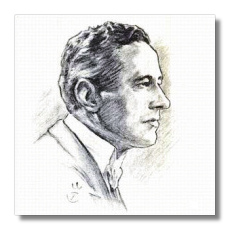
The Internet's Premier Classical Music Source
Related Links
- Latest Reviews
- More Reviews
-
By Composer
-
Collections
DVD & Blu-ray
Books
Concert Reviews
Articles/Interviews
Software
Audio
Search Amazon
Recommended Links
Site News
 CD Review
CD Review
Leonard Pennario

- Johannes Brahms: Rhapsody in G minor
- Franz Liszt: Transcendental Etude #10
- Paganini/Liszt: La Campanella
- Robert Schumann: Quartet for Piano and Strings
- Anton Arensky: Waltz in C
- Johannes Brahms: Waltzes #1, 2, 11, 14, and 15
- Antonín Dvořák: Slavonic Dances; in G minor; in E minor; in C
- Edvard Grieg: Norwegian Dances #2 and 3
- Franz Schubert: Marche militaire
- Leonard Pennario: March of the Lunatics
Leonard Pennario, piano
Eudice Shapiro, violin
Sanford Schonbach, viola
Victor Gottlieb, cello
ReDiscovery RD105 ADD 73:44
"Nobody plays the piano better than Leonard Pennario," wrote Andrew Porter in London's New Statesman. (And this was when Vladimir Horowitz, Earl Wild, Shura Cherkassky and (fill in the name the great pianist of your choice here) were still alive and kicking.) Pennario was born in 1924, in snowy Buffalo, but relocated to Los Angeles, which explains why most of the recordings he made early in his career were on the Capitol label. Searching on the Net, it was surprisingly difficult to find much biographical information about a pianist whose name everyone recognizes (if they are of "a certain age"). There is a frequently re-told story about his breakthrough 1936 performance of the Grieg Piano Concerto – a score the 12-year-old pianist had never heard, let alone played, until less than a week earlier. Another entertaining tidbit on the Net is a reproduction of an article ("Virtuoso in the Jungle") in The Etude, dating from June 1947. This describes how Pennario served overseas in the Air Force during World War Two, playing concerts for American soldiers as part of the Special Services in China, Burma, and India.
Pennario recorded more than 60 LPs, and many of these never have been reissued on CD. Most that have been reissued, however, have been at budget prices, which just goes to show that in the world of classical recordings, one often gets more than what one pays for. The present ReDiscovery disc is at full price, but it preserves the partial contents of Pennario Plays, Piano Portraits, The Two Pianos of Leonard Pennario, and an LP containing Schumann's Piano Quartet in E flat. One could wish that ReDiscovery had not chopped up four LPs to make one CD, but frankly, it is good to have this material available anyway.
The program on this CD is in three parts. First come solo piano works by the early Romantics. Pennario's performance of the Brahms G-minor Rhapsody is interesting, because he makes the music sound darker and more brusque than it usually does. I liked the way in which he strongly contrasted legato and staccato passages – this seems typically Brahmsian to me. The Liszt works are played with a virtuosity which hides virtuosity; Pennario's reported modesty finds its musical equivalent here!
The second part of the program is devoted to Schumann's Piano Quartet. Sometimes pianists "hog" this work, but Pennario remembers that this is not a piano sonata with optional accompaniment by three string players! There are more dramatic performances of this work on disc, but Pennario and his colleagues play as a team of equals. Clearly they were listening closely to each other during the recording sessions, and that is what makes this reading so satisfying and so musical.
The third and most unusual part of the program is taken from The Two Pianos of Leonard Pennario, a fiesta of overdubbing in which the pianist tackles four-hand repertoire – quite delightfully! Pennario's own sarcastic March of the Lunatics was based on an experience with an out-of-tune piano. It's a polytonal jest reminiscent of the March from Prokofieff's Love for Three Oranges.
The first part of the program is dully recorded, but the sound improves on the remaining tracks. Surface noise and pre-echo betray the LP origins of the program – there's also some unsteadiness at the start of the Schumann – but no one should be too disturbed by any of this. David Gideon's conscientious digital remastering gives the source material its due. As with other ReDiscovery issues, this is a no-frills CD-R with very little to offer in terms of annotations or other niceties, but it's the music and the musicianship that count! The $15 price includes shipping and handling. ReDiscovery CDs can be purchased from their website: www.rediscovery.us.
Copyright © 2006, Raymond Tuttle












